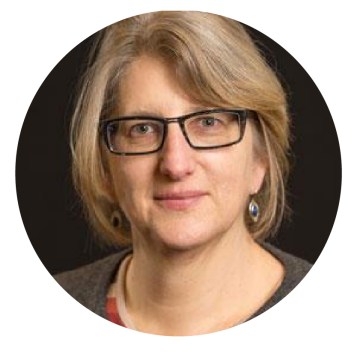
Health in Latin America: From Indigenous Healing to Biomedicine
June 29, 2017 ▪ 8:30 am-4:30 pm ▪ University of Michigan
SCECH units available
This workshop will introduce grade 6-12 teachers (but all are welcome!) to the diverse demographics of Latin America and some of the different strategies and traditions for promoting health and wellbeing. We will highlight Indigenous, African, and immigrant populations and explore how their traditions influence public policy and public health. This part of the program will explore the concepts of population, demography, public health, colonialism, worldview, biomedicine, and indigenous medicine. Teachers will leave with a more nuanced understanding of these topics and ideas for resources and strategies for sharing them with students.
Participants will learn strategies for using visual art as a teaching tool in their lesson plans. We will highlight ways to use the University of Michigan Museum of Art (UMMA) as a resource when talking about topics like health and social studies. This will include both looking at and creating visual art.
All participants will be eligible to »
Registration Fee: $20.00
Included in cost: Light breakfast, lunch, coffee throughout the day, copy of the book Medicine and Public Health in Latin America: A History by Marcos Cueto and Steven Palmer, print resources, and art supplies.

 Alexandra Stern is a professor of American Culture at the University of Michigan. She holds appointments in the Departments of History, Women's Studies, and Obstetrics and Gynecology. Currently she directs the Center for Latin American and Caribbean Studies and the Sterilization and Social Justice Lab in the Department of American Culture.
Alexandra Stern is a professor of American Culture at the University of Michigan. She holds appointments in the Departments of History, Women's Studies, and Obstetrics and Gynecology. Currently she directs the Center for Latin American and Caribbean Studies and the Sterilization and Social Justice Lab in the Department of American Culture. Alana Rodriguez is the academic program specialist for the Center for Latin American and Caribbean Studies. She joined the University of Michigan in January 2017, bringing administrative and area studies experience from her previous position as the administrative coordinator of the Center for Latin American Studies at San Diego State University (SDSU). She is finishing her MA in Latin American Studies and an MPH in epidemiology from SDSU. Her research interests lie in sexual and reproductive health disparities among rural adolescent and young women in Oaxaca and among women in Cuba, Indigenous worldviews related to health and sexuality, and Cuban reproductive health care policy and practice. Her thesis research was compiled over two summers in Havana, Cuba and looks at declining fertility rates in Cuba and, in particular, the impact of Cuba’s socialist policies on the notion of ‘choice’ in reproduction. She explored hidden barriers to fertility and questioned how recent capitalistic market reforms in Cuba may impact fertility in the future by indirectly addressing these barriers in unequal ways across the population. Her research questions whether these inequalities will surface along racial lines as a result of a colorblind racial policy instituted during and after Cuba’s revolution and may impact access to reproductive freedom. She received a BA in International Business at San Diego State University and a Licenciatura en Negocios Internacionales from Tecnológico de Monterrey, Campus Guadalajara.
Alana Rodriguez is the academic program specialist for the Center for Latin American and Caribbean Studies. She joined the University of Michigan in January 2017, bringing administrative and area studies experience from her previous position as the administrative coordinator of the Center for Latin American Studies at San Diego State University (SDSU). She is finishing her MA in Latin American Studies and an MPH in epidemiology from SDSU. Her research interests lie in sexual and reproductive health disparities among rural adolescent and young women in Oaxaca and among women in Cuba, Indigenous worldviews related to health and sexuality, and Cuban reproductive health care policy and practice. Her thesis research was compiled over two summers in Havana, Cuba and looks at declining fertility rates in Cuba and, in particular, the impact of Cuba’s socialist policies on the notion of ‘choice’ in reproduction. She explored hidden barriers to fertility and questioned how recent capitalistic market reforms in Cuba may impact fertility in the future by indirectly addressing these barriers in unequal ways across the population. Her research questions whether these inequalities will surface along racial lines as a result of a colorblind racial policy instituted during and after Cuba’s revolution and may impact access to reproductive freedom. She received a BA in International Business at San Diego State University and a Licenciatura en Negocios Internacionales from Tecnológico de Monterrey, Campus Guadalajara. Angelina Trujillo is an instructor of Mixtec language and culture at San Diego State University and interpreter of Mixtec (an Indigenous language spoken by Mixtec communities in the Mexican states of Oaxaca, Pueblo, and Guerrero) to English in the San Diego Federal Court. She is currently pursuing a masters in Latin American Studies from SDSU. She received her BA in medical anthropology with a specialty in Indigenous medicine and a minor in linguistics from California State University at San Marcos and has been conducting health-related field work in her home community of Ixpantepec, Nieves for over a decade.
Angelina Trujillo is an instructor of Mixtec language and culture at San Diego State University and interpreter of Mixtec (an Indigenous language spoken by Mixtec communities in the Mexican states of Oaxaca, Pueblo, and Guerrero) to English in the San Diego Federal Court. She is currently pursuing a masters in Latin American Studies from SDSU. She received her BA in medical anthropology with a specialty in Indigenous medicine and a minor in linguistics from California State University at San Marcos and has been conducting health-related field work in her home community of Ixpantepec, Nieves for over a decade. Pamela Reister is the curator for Museum Teaching and Learning at the University of Michigan Museum of Art. Reister
Pamela Reister is the curator for Museum Teaching and Learning at the University of Michigan Museum of Art. Reister 